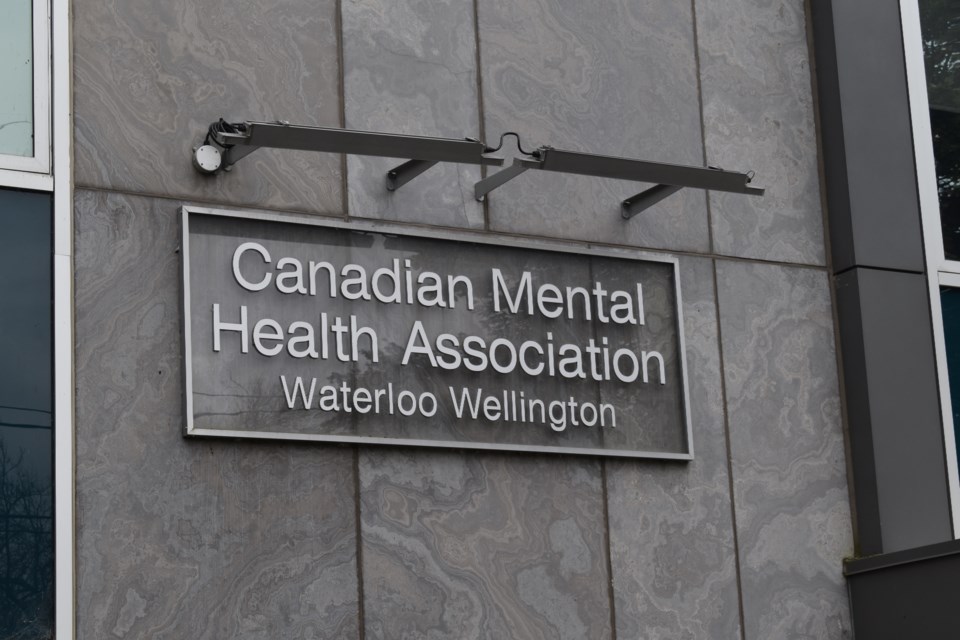As of Wednesday morning, 3,824 people are waiting for mental health care in the Guelph, Wellington and Waterloo regions.
All of these people have completed an assessment with the Canadian Mental Health Association Waterloo Wellington (CMHAWW), however, due to a backlog, these people are waiting for access to services and ongoing care.
This figure does not include those who have called in crisis as those called are responded to immediately.
Helen Fishburn CMHAWW CEO said the pandemic completely changed the baseline in mental health and addictions, pushing the estimated one in five Canadians who will personally experience a mental health problem or illness into irrelevancy as she believes that number is creeping closer to four out of five Canadians.
“That’s not to say four in five Canadians have a diagnosable mental health condition, but you look at the level of disruption, the level of distress and the significant impact COVID-19 has had on people's lives,” said Fishburn.
Since the pandemic started, CMHAWW has seen a 35 to 40 per cent increase in calls per month, jumping from a monthly pre-pandemic average of 3,500- 4,000 calls 6,000 and 6,500 per month.
CMHAWW is calling for further action from the Ford government, which includes increased funding to address the gaps in the budget which allow for mental health funding to slip through.
“For the past 18 months we have had people calling us that have never ever needed to reach out for help before, and thousands and thousands of people, so that is the new normal for mental health and addictions,” said Fishburn. “We were underwater before, but now it’s literally a tsunami.”
Marking the start of a new legislative session, Premier Doug Ford's government had the opportunity to lay out a roadmap to recovery, which Fishburn believes did not adequately emphasize the need to support the community health and addictions sector.
Ford’s throne speech, delivered by Lt.-Gov. Elizabeth Dowdeswell on Oct. 4, emphasized the economic recovery from COVID, supporting the health-care and long-term care systems and the feting of the vaccine rollout while saying the “ultimate goal shared by all” is avoiding future lockdowns.
“The government needs to fund a full comprehensive mental health and addictions system in Ontario to be able to support those changing needs,” said Fishburn.
Lumped into the healthcare category, the throne speech did not acknowledge the mental health crisis, neglecting to address the concerns raised by groups such as CMHA.
A fully-funded mental health and addictions system, according to Fishburn, would see funding going toward a system of care, similar to what is seen when someone is diagnosed with cancer and receives care coordination and access to someone who can alleviate and help with the treatment plan by connecting the pieces of care.
"They have someone that acts as the glue in their treatment plan and connects them and all of the pieces of their care together. We don't have that in the mental health and addictions system," said Fishburn.
Across Waterloo, Guelph and Wellington there are 11 formally-funded mental health and addictions care providers who are all connected through the Here 24/7 service.
According to three rounds of CMHA Ontario public polling, the pandemic is a serious mental health and addictions issue, with nearly 80 per cent of Ontarians believing that the province is going to be facing a significant mental health crisis when the pandemic is over.
The budgets funds allocated to fight mental health are not reflective of these polls, however, of the $69.8 billion in base health sector funding outlined in the Ford government budget, only 5.8 per cent goes toward the community health and addictions sector receives only.
When the budget was released in March of this year, additional funding of $175 million in 2021–22 as part of the historic investment of $3.8 billion over 10 years for mental health and addictions services was included.
